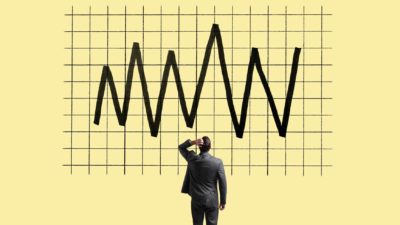Innovation and disruption are, in many ways, the bedrock of our economy.
Certainly of our economic growth.
Yes, the old faithfuls keep doing their thing, and we need them, but it's the driver for the 'new' that pushes us forward.
Indeed, consider the grocery chains.
There was a time 'self service' wasn't a thing. You went to a store and told the clerk what you wanted. He (it was usually a bloke) got your goods, bagged them up, charged you for them, and off you went.
That clerk wouldn't recognise the supermarket of 1980, let alone 2021.
And in that 40 years, we've seen barcodes and scanners speed up service, checkout conveyors do the same, and trading hours increase to facilitate flexibility.
Those same supermarkets now include fresh fruit and vegetables, fresh meat and often fresh bread and seafood.
We can now order online and either organise delivery or have the bags put straight in our boots.
Product ranges have expanded, freight deliveries to those stores are now more regular, and there are fewer holes on shelves because stock levels are more easily managed.
And that's just the humble supermarket.
We all know about the revolutions in computers, mobile phones (apparently you can still use them for calls) and video streaming. (My son actually complains if he misses the ads, because he sees so few. It's a far cry from my childhood watching one of three television channels and having to get up from my chair to change them!).
Also, take solar panels. The huge strides in automotive efficiency, even before you include hybrids and EVs. Social networks (for good and ill). New ways to pay for things (ditto).
But not just in the big ways.
In small ways, too. The advances in technology that make computer processors a little cheaper each time. That allow for communications to be faster and clearer. It is no small thing to think about all of the interactions over the last two or three decades that let many of us work from home, almost unimpeded, during COVID.
Had the pandemic hit even five years ago, the video conferencing software, internet speeds and the like would have been far more challenging.
And the last five years' worth of innovation compound on top of the previous five, 10, 20 and 50 years before that.
Today's internet is the descendant of the first telegraph line to cross the country. Today's EV is the natural evolution of a long line of motorisation that goes back a century.
It's true that progress brings its challenges, risks and unintended consequences… but it has given us a society that is far better off than in decades and centuries past. It is truly better to be relatively poorly off, today, than to have been royalty 200 years ago.
(Which is not an excuse nor a cover to pretend we can't improve things for all of us. We truly can — and should — but that's a conversation for another day.)
And, as an investor, it's important to remember that our economy (and the stock market) is not a static, unchanging beast.
As a correspondent to our Motley Fool Money podcast wrote the other day "Companies are like sharks. They're either moving forward or dying".
Which doesn't mean you (necessarily) have to invest on the 'bleeding edge' of technology. Truth be told, I'm no tech expert or futurist. I don't claim to be and — thankfully — I don't need to be.
But I do try to, as ice hockey superstar Wayne Gretzky famously said, skate no to where the puck is, but "… where the puck is going".
It's obvious, but also not implemented as often as it should be, in investing.
A lot of time and effort is spent, for example, in trying to work out if and when AMP Ltd (ASX: AMP) will finally turn around its two-decade long tale of share price woe.
On the flipside, you've had plenty of businesses that continued to grow, some strongly, some moderately, over that time.
In hindsight it's easy, even trite, to make the point that the latter group was the one to invest in, and AMP was best avoided.
But it's an example of a larger trend.
It's almost too simple, yet rarely followed. And I think it's intuitive, if you take the time to stop and think it through: I think investing in growth is far more likely to beat expecting a turnaround.
Not all the time, or without exception.
But overall. On average.
Not every company.
Price still matters.
As does an understanding of the competitive dynamics of a given industry.
Woolworths Group Ltd (ASX: WOW) has been working on building its ecommerce business for years. Decades, even.
So when the need arose, it was reasonably able to scale it, relatively quickly, rather than trying to circle the proverbial wagons against the threat.
It understands the need to keep moving forward.
Our task, then, as investors isn't even to play 'amateur futurist' and make outlandish bets on which niche technology might possibly win the future.
(Sure, you might predict the iPhone. Or, you know, the laser disc!)
Instead, I think we can make our jobs easier but also improve our potential returns, by simply looking for businesses that are looking to, and preparing themselves for, the future.
And those who aren't just making promises, but actually growing as they do.
The successes of the past are fine, as it goes, but if they don't have a realistic plan to win from here, they might be best left on the shelf.
If you can find the right businesses (and pay a decent price), I think you're probably giving yourself the best chance of long term success.
(Next time, I'll share a couple of companies that we think fit that bill. Stay tuned…)
Fool on!









